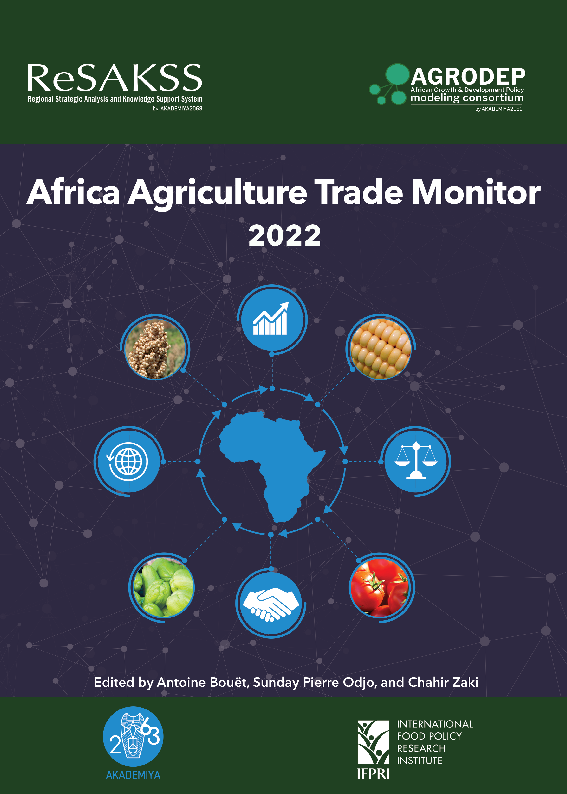 Read this article in French
Read this article in French- Share this article
- Subscribe to our newsletter
2022 Africa Agriculture Trade Monitor
This year’s edition of the Africa Agriculture Trade Monitor (AATM) was published by AKADEMIYA2063 and the International Food Policy Research Institute (IFPRI) in September 2022.
According to the report, the current African Continental Free Trade Area (AfCFTA) tariff agreement will increase African exports of agrifood goods by only 1.6 per cent, whereas the complete elimination of tariffs on intra-African trade would increase exports by 6.2 per cent.
The disruptive effects of the Russia-Ukraine war are compounding Africa’s difficulties in boosting its participation in world trade and reaping the developmental benefits. Africa still captures only a small share of global trade in value-added terms despite increasing participation in global value chains (GVCs). Furthermore, African countries are positioned more upstream in GVCs, still providing mostly unprocessed agricultural products rather than more value-added food or other products.
These results suggest that African countries should continue to broaden their processing and manufacturing sectors to upgrade to a more balanced position in agrifood and other types of GVCs while taking advantage of opportunities offered by the large domestic market created by the AfCFTA.
The full implementation of the AfCFTA can contribute to the development of regional value chains, allowing African countries to benefit from trade complementarities and economies of scale as they access a larger and open market. Internal challenges related to infrastructure and access to technology and credit must also be addressed, as these are key determinants of the success of African countries in upgrading along regional and global value chains.
The 2022 AATM provides a detailed analysis of trends and policy issues in value chains for stimulants (cocoa, coffee, and tea), demonstrating that trade in these sectors is still concentrated in unprocessed products. The report also examines the patterns of trade integration within the Economic Community of Central Africa States (ECCAS).
The AATM is produced and published under the African Growth and Development Policy Modeling Consortium (AGRODEP) and the Regional Strategic Analysis and Knowledge Support System (ReSAKSS) programmes as a collaborative effort by AKADEMIYA2063 and the International Food Policy Research Institute (IFPRI). The annual flagship report builds on the work of both organisations in support of the Comprehensive Africa Agriculture Development Programme (CAADP).
(AKADEMIYA2063/ile)
Read more and download the report on the ReSAKSS website





Add a comment
Be the First to Comment